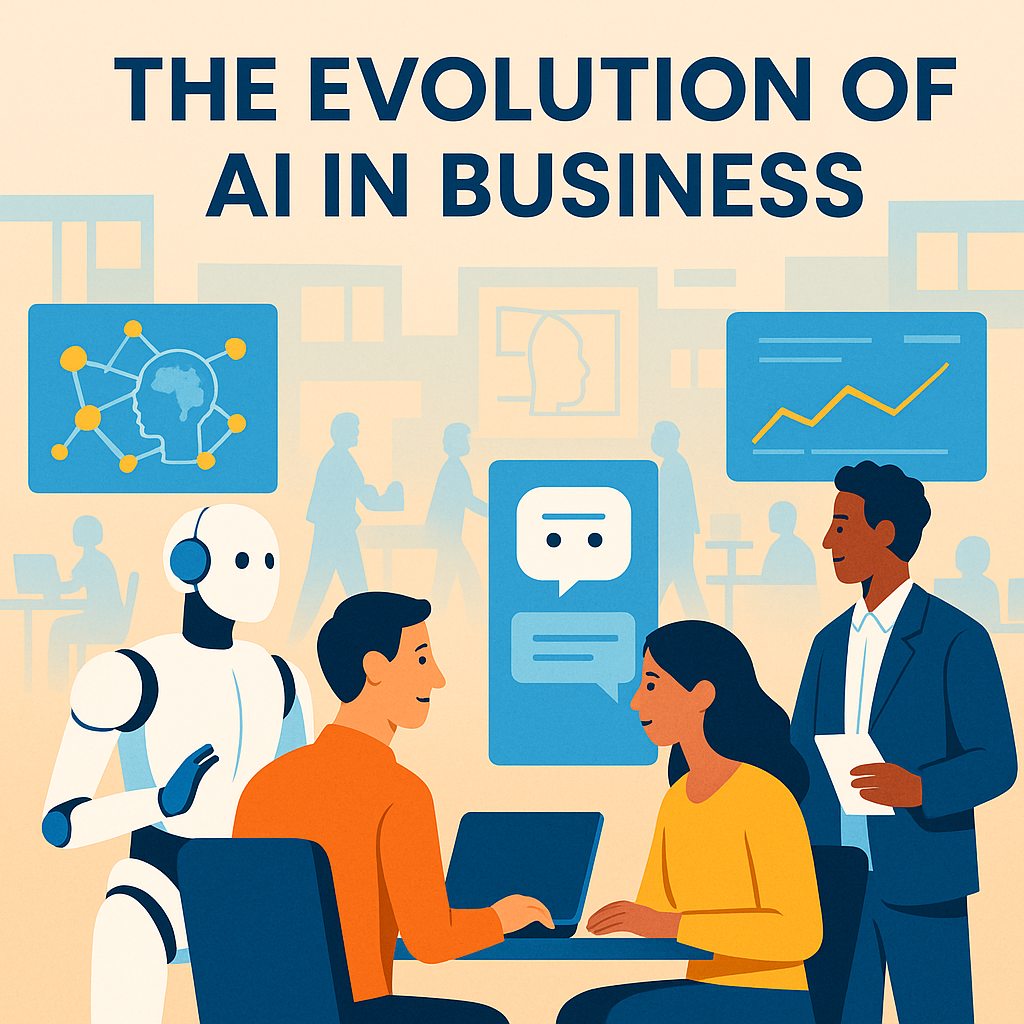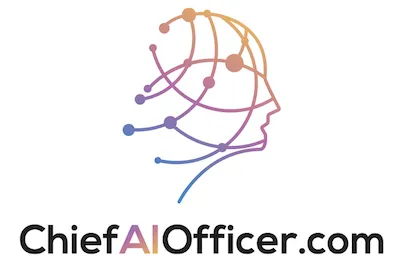
The AI Evolution: Leveraging AI Agents for Business Success
The Evolution of AI Adoption: How Businesses Can Leverage AI Agents
From Early AI to Today's Applications
Edwin's company has been working with AI since 2017, long before ChatGPT became popular. This gives him a unique view on how AI has grown and changed.
"We've been a while before ChatGPT was even introduced into the market," Edwin explains. "We see how this technology was emerging for all the last years and how it's being adopted today."
Before tools like ChatGPT became available to everyone, AI was mainly seen as statistics, rules, and predictive analytics. Companies used it for tasks like:
Demand forecasting
Customer churn prediction
Computer vision (detecting objects, people, faces)
Image recognition
Text processing
The big change came when ChatGPT showed everyone how powerful AI could be. Now more people can see real applications in their daily lives.
Small Companies Competing with Giants
What's interesting about Adepto is how they compete with much bigger companies. Edwin mentions they often find themselves in the same bidding processes as industry giants like Deloitte.
"In some tenders or public RFPs, we compete with such large players," he notes. "Adepto in some cases is selected because of its expertise, agility, and how we approach topics in a very fast manner."
This shows that AI expertise isn't just for big corporations. Smaller, agile companies can often deliver better results because they can move faster and adapt more quickly.
The Evolution of Business AI Use Cases
Edwin shares how companies typically start using AI and then expand their applications:
First step: Building internal knowledge-based chatbots
"After generative AI was introduced, all companies started building internal knowledge-based chatbots. Everyone started asking questions about the company, about compliance procedures."
Next level: More complex applications
"Now it's expanding and evolving. We're starting to adapt it to niche-specific use cases or business problems. What if AI can read our internal knowledge, internal database documentation, and what if this documentation is very complex like engineering documentation with code?"
Advanced applications:
"What if we can start generating more complex information like documentation, engineering documentation, simulations documentation? What if we can start drawing architectures or very complex technical details using AI?"
This progression shows how AI is moving from simple information retrieval to becoming a true assistant that can analyze information and create new solutions.
Starting Your AI Journey: Think Big, Start Small
If you're a business owner wondering where to begin with AI, Edwin has clear advice:
"Start small but think big. You always should consider some larger vision for your AI strategy, but I would never recommend starting so big. You should start with smaller use cases, adopting AI in very simple workflows or procedures."
He also emphasizes the importance of preparing your team:
"Make sure your talent pool in the company, the people, are ready for this AI adoption. You should never forget about the people who are inside, because these people would be adopting this AI. The goal is for them to not be afraid of the technology, but rather being open to adopting it."
Want to learn more about AI for your business? Check out our FREE AI Authority Challenge.
AI Won't Replace Humans, But Humans Using AI Might Replace Those Who Don't
One of the most valuable insights Edwin shares is about the future of work with AI. He clarifies that AI isn't here to replace humans:
"AI is not here to replace us. AI is to support how we make decisions, how we make things faster, better, with higher quality so that people can concentrate on more complex decision making."
However, he agrees with an important point: "We should be more scared of the people who are capable to use AI in their work at scale rather than just be afraid of AI."
This means the real challenge isn't AI taking your job – it's being left behind while others use AI to become more productive, faster, and deliver higher quality work.
Computer Vision: AI That Can See
Beyond text-based AI, Edwin discusses computer vision – teaching computers to see as humans do. This has huge applications in manufacturing:
"Computer vision is making a real impact when it comes to production quality assessment, logistics, and adopting smart robots into manufacturing processes."
For businesses, this means AI can inspect products for defects, manage inventory, and help automate physical processes far beyond what most people think of when they hear "AI."
The Future: AI Agents Coming in 2025
Looking ahead, Edwin expects 2025 to be a breakthrough year for AI:
"We expect 2025 to be the year where we will see this real disruption and maybe a real change from what we saw in 2022. We expect to see a really differently behaving model capable of more activities."
While he doesn't believe we'll see fully autonomous AI yet, he expects significant progress in agentic AI – systems that can:
Understand your query
Divide it into smaller tasks
Run those tasks
Make decisions while running these tasks
Return with a complete result
He explains that these agents would work best when they have access to a company's knowledge: "The whole company's data is structured in a Knowledge Graph and this knowledge graph represents like company's brains."
Getting Started with AI in Your Business
If you're inspired to start using AI in your business, remember Edwin's advice: "Think big, start small."
Identify repetitive tasks that could be automated
Look for areas where decision-making could be enhanced with AI
Prepare your team for AI adoption
Start with small, manageable projects
Build toward your larger AI vision
Ready to learn more about AI for your business? Join our FREE AI Authority Challenge
FAQ:
What is adepto and how long have they been working with AI?
Adepto is an AI consultancy co-founded by Edwin Lisowski in 2017, with offices in Warsaw and New York. They've been deploying AI solutions since before ChatGPT was introduced to the market and were recognized by Forbes as one of the top 10 AI consultancies alongside major players like Deloitte.
How has AI implementation changed since ChatGPT was released?
While adepto was working with AI technologies like natural language processing before ChatGPT, its release dramatically changed public perception of AI's capabilities. Previously, many viewed AI as primarily statistical models for predictions or basic image recognition. Now, there's greater awareness and creative thinking about AI's potential applications in business.
What industries can benefit from AI implementation?
Adepto has worked with diverse industries including real estate, retail, manufacturing, entertainment, aviation, airlines, and aerospace. According to Edwin, almost any industry can benefit from AI implementation when approached strategically.
What's the best approach for businesses to start implementing AI?
Edwin recommends to "think big, start small." Businesses should develop a comprehensive AI strategy but begin with smaller, targeted use cases that address specific pain points. It's crucial to ensure your team is ready for AI adoption and not fearful of the technology.
Will AI replace human workers?
According to Edwin, who has deep technical expertise in AI, the technology is designed to augment human capabilities rather than replace people. AI helps humans make better decisions, work faster, and produce higher quality results, allowing people to concentrate on more complex decision-making. The greater risk comes from professionals who know how to leverage AI effectively competing against those who don't.
What is the typical AI adoption progression for companies?
Companies often start with simple applications like internal knowledge chatbots that let employees ask questions about company policies or procedures. As they grow more sophisticated, they progress to more complex use cases like having AI analyze technical documentation, generate engineering documentation, create technical designs, or develop architectural drawings.
What is an AI agent and what should we expect in 2025?
AI agents are specialized AI tools that can divide complex tasks into smaller steps, execute those steps, make decisions along the way, and return results. While Edwin expects 2025 to bring significant advancements in AI capabilities, he doesn't anticipate fully autonomous general intelligence yet. Agents will still require human oversight and proper instruction, but they'll be more capable of making decisions based on business data and context.
How important is data governance for AI implementation?
Very important. For AI to make proper business decisions, it needs access to structured company data. Edwin suggests that ideally, companies should organize their data into a "knowledge graph" that represents the company's collective intelligence with clear relationships between different information elements. This structured approach helps AI make more precise and contextually appropriate decisions.
Do you need a large budget to implement AI effectively?
While adepto primarily works with enterprise clients (70-80% of their business), Edwin emphasizes that smaller companies can also benefit from AI implementation. The key is identifying repetitive workflows that can be automated without large budgets or lengthy timelines. Understanding your business challenges and pain points, then mapping how available AI technology can address them, is more important than developing expensive custom solutions.

